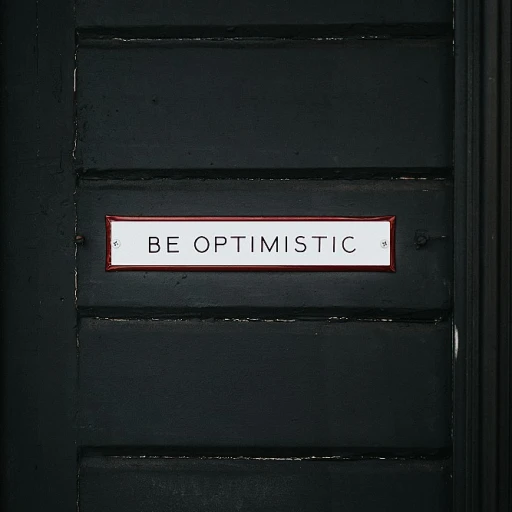
Understanding the Role of a Mentor
Exploring the Mentor's Role in Your Career Development
Understanding the role of a mentor is crucial in shaping your career path and enhancing your professional development. A mentor is not just a guide but a partner in your journey, offering insights and advice that can help you navigate the complexities of your career. This relationship is built on trust and mutual respect, where both mentor and mentee share experiences and learn from each other.
In a successful mentoring relationship, your mentor will help you identify and achieve your goals. They provide a sounding board for your ideas and challenges, offering feedback that is both constructive and encouraging. This feedback is essential for your growth and will help you refine your skills and strategies.
To make the most of your mentorship experience, it's important to understand what you want to achieve. Identifying your goals early on will help you and your mentor focus on the areas that need development. This clarity will also guide the questions you ask during your mentoring sessions, ensuring that the time spent is productive and aligned with your career aspirations.
Building a strong mentor-mentee relationship takes time and effort. Regular communication and openness to feedback are key components. As you work together, you'll find that your mentor's insights become invaluable in overcoming challenges and advancing your career.
For those looking to enhance their mentoring experience, consider exploring resources like effective one-on-one templates to structure your sessions and maximize the benefits of your mentorship program.
Identifying Your Goals
Clarifying Your Aspirations
Before diving into a mentoring relationship, it's crucial to identify what you want to achieve. This step is foundational to your mentorship experience and will help you and your mentor focus your efforts effectively. Consider your career path and where you see yourself in the future. Are you aiming for a leadership role, or do you want to develop specific skills? Clarifying these aspirations will guide the questions you ask and the advice you seek.
Setting Clear Objectives
Once you have a broad understanding of your career goals, it's time to set specific, measurable objectives. These objectives will serve as milestones in your professional development. For instance, if you're looking to enhance your leadership skills, you might set a goal to lead a project within the next six months. Having clear objectives will make your mentoring sessions more productive and focused.
Aligning Goals with Your Mentor
After identifying your goals, it's essential to share them with your mentor. This transparency will help your mentor understand how they can best support you. Discussing your goals will also allow your mentor to tailor their advice and share relevant experiences that align with your aspirations. This alignment is key to building a strong mentor-mentee relationship.
Addressing Challenges
As you work towards your goals, you'll likely encounter challenges. These obstacles are opportunities for growth and learning. Discussing these challenges with your mentor can provide valuable insights and strategies to overcome them. Your mentor's experience and perspective can help you navigate these difficulties and continue progressing in your career development.
For more insights on how to approach a potential mentor and enhance your mentoring experience, consider exploring this guide.
Crafting the Right Questions
Essential Questions for a Successful Mentoring Journey
Crafting the right questions is pivotal in supercharging your mentoring experience. By intentionally asking questions, you not only express curiosity but also gain deep insights that steer personal and professional growth. The mentorship experience can significantly contribute to your career development if approached with careful consideration and strategic questioning.- Clarify Your Career Path: Begin by identifying the areas in your career where you seek development. What aspects of your professional journey need clarity? Tailor questions to address these specific elements to gain clarity on your current and future roles.
- Focus on Skill Development: Your mentorship should propel your skills to new heights. Inquiring about the skills necessary for advancement helps pinpoint the areas for focus. Ask your mentor which skills are essential for your goals and what strategies will help cultivate them effectively.
- Seek Advice on Challenges: Every career path has its own set of challenges. Encourage your mentor to share experiences and advice on tackling professional hurdles. Questions addressing how to handle specific challenges will equip you with invaluable tactics to navigate complexities.
- Enhance the Mentoring Relationship: Fostering a strong mentor-mentee relationship requires open communication. Convey your expectations and encourage feedback. Discuss how you can contribute to and enrich this mentorship relationship, ensuring it is mutually beneficial.
- Maximize Professional Growth: Use your mentorship time to discuss opportunities within your current role. Questions concerning potential roles and growth opportunities ensure you are on the right path for advancement. Inquire about the professional landscape and seek guidance on leveraging your strengths for success.
Building a Strong Mentor-Mentee Relationship
Fostering a Collaborative Mentorship Environment
Building a strong mentor-mentee relationship is crucial for a successful mentorship experience. This relationship forms the foundation upon which your career development and professional growth are built. A collaborative environment encourages open communication, trust, and mutual respect, which are essential for both personal and professional development.
To cultivate this environment, consider the following:
- Open Communication: Regularly share your goals, challenges, and progress with your mentor. This transparency will help your mentor provide tailored advice and support that aligns with your career path.
- Active Listening: Pay close attention to the insights and feedback your mentor offers. This not only shows respect but also enhances your learning and growth.
- Mutual Respect: Acknowledge the time and effort your mentor invests in your development. Respect their experience and be open to their guidance, even when it challenges your current perspectives.
- Consistent Engagement: Schedule regular meetings to discuss your progress and any new questions or challenges that arise. This consistency will help maintain momentum in your mentorship relationship.
By fostering a collaborative mentorship environment, you create a space where both you and your mentor can thrive. This approach not only enhances your current mentorship experience but also lays the groundwork for future professional relationships.
Leveraging Feedback for Growth
Embracing Constructive Feedback
Feedback is a cornerstone of any successful mentoring relationship. It serves as a mirror, reflecting both strengths and areas for improvement. In your mentorship, actively seek feedback from your mentor to enhance your professional skills and career development. This process is not just about receiving advice but also about engaging in a dialogue that will help you grow.
Turning Feedback into Action
Once you receive feedback, the next step is to translate it into actionable steps. Discuss with your mentor how you can implement their suggestions in your current work environment. This might involve setting new goals or adjusting your career path to better align with your professional aspirations. Remember, the aim is to foster a mentorship experience that supports your development.
Regular Check-ins
Schedule regular check-ins with your mentor to discuss your progress. These sessions are an opportunity to share your challenges and successes, allowing your mentor to provide targeted advice. This ongoing dialogue will help solidify the mentor-mentee bond and ensure that your mentoring program remains aligned with your goals.
Reflecting on Feedback
Reflection is a critical component of leveraging feedback. Take time to consider how the feedback has impacted your professional journey. Reflecting on your progress will help you identify patterns and areas where further development is needed. This introspection is essential for continuous improvement and achieving your career goals.
By effectively leveraging feedback, you not only enhance your skills but also strengthen your mentorship relationship. This proactive approach will help you navigate your career development with confidence and clarity.
Reflecting on Progress
Reflecting on Your Progress
Making the most out of your mentoring experience involves taking the time to reflect on your progress. Doing so will help you identify how your mentorship has contributed to your career development and which areas still require growth. This self-assessment process not only enhances your learning experience but also reinforces your professional skills. Reflecting on your work often involves evaluating the effectiveness of the goals you set with your mentor and the extent to which your mentor's advice has been useful. Asking yourself a series of insightful questions can facilitate this reflective journey:- How has the mentorship helped you overcome specific challenges in your career path?
- Which of your professional goals have seen the most progress?
- What feedback from your mentor has been particularly transformative?
- Are there skills you’ve acquired or honed as a direct result of your mentor-mentee relationship?













